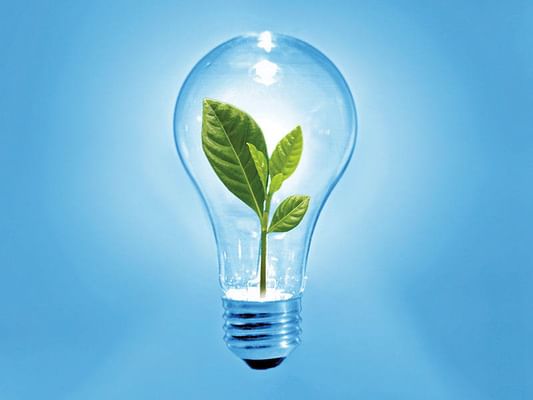- Undergraduate
Bachelor's Degrees
Bachelor of ArtsBachelor of EngineeringDual-Degree ProgramUndergraduate AdmissionsUndergraduate Experience
- Graduate
Graduate Experience
- Research
- Entrepreneurship
- Community
- About
-
Search
All Thayer News

Biofuels Grant: Energy Technologies
Dec 01, 2021 | by Julie Bonette | Dartmouth Engineer

Image courtesy iStock.
Engineering Professor Daniel Olson will lead new research funded by a $1.2-million, three-year grant from the U.S. Department of Energy (DOE) to investigate the use of biomass to produce next-generation fuels and chemicals.
The goal is to use C. thermocellum, a type of bacteria that is a promising candidate for cellulosic biofuel production, to better understand similar organisms and their potential as a platform for production of fuels and chemicals.
“Biofuels made from cellulose are one of the few options available for reducing greenhouse gas emissions in the heavy-duty transportation sector, which includes long-haul trucking, ocean shipping, and aviation. Bacteria that natively consume cellulose are good candidates for producing cellulosic biofuels, but in many cases their metabolism is poorly understood,” says Olson.
“To better understand metabolism in these organisms, we are combining a relatively old-fashioned technique of enzyme assays with robotics, modern computer modeling, and advanced analytical chemistry techniques,” he adds.
The grant, “Cell-free systems biology of an atypical glycolytic pathway,” will also involve researchers from Pennsylvania State University, the National Renewable Energy Laboratory (NREL), and the University of Wisconsin. The funding is part of $45.5 million the DOE recently awarded to efforts across the country to better understand and harness nature’s processes to produce clean biofuels and bio-products, enhance America’s energy security, and build its clean-energy economy.
“Biofuels that can power planes and ships and bio-products made from renewable resources will play a critical role in decarbonizing our economy—and today’s awardees will help us understand, predict, and even design them at the cellular level so we can unlock their full potential,” says U.S. Secretary of Energy Jennifer Granholm about the awards. “Led by the unparalleled scientific capabilities at DOE’s national labs and America’s world-leading research universities, these projects will help us develop low-carbon products that drive economic growth while building a more sustainable world for our children and grandchildren.”
For contacts and other media information visit our Media Resources page.
